SURGICAL TECHNOLOGY
CONSUMER INFORMATION
More text here
More text here
More text here
More text here
More text here
More text here
More text here
More text here
More text here
More text here
More text here
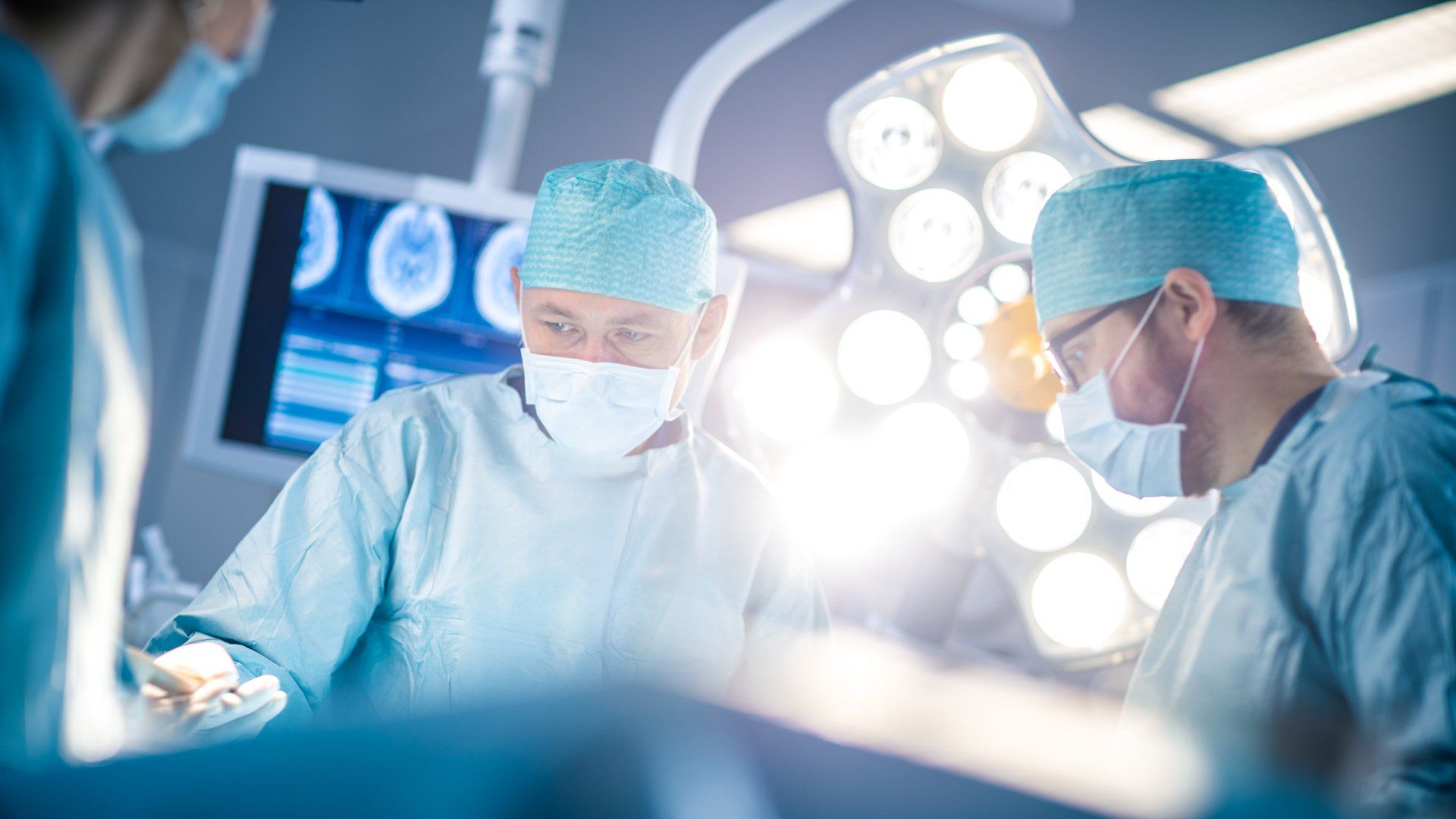
Associate of Applied Science Degree Surgical Technology Program
The Surgical Technology program provides students with the technical ability, knowledge, and skills required for entry-level employment as a member of the healthcare team in hospital or surgical center operating rooms. Students receive training in the essentials of healthcare, surgical instrumentation, anatomy, physiology, medical language and pharmacology. Graduates will be prepared for employment as an operating room technician/scrub tech. A degree will be awarded upon successful completion of this program.
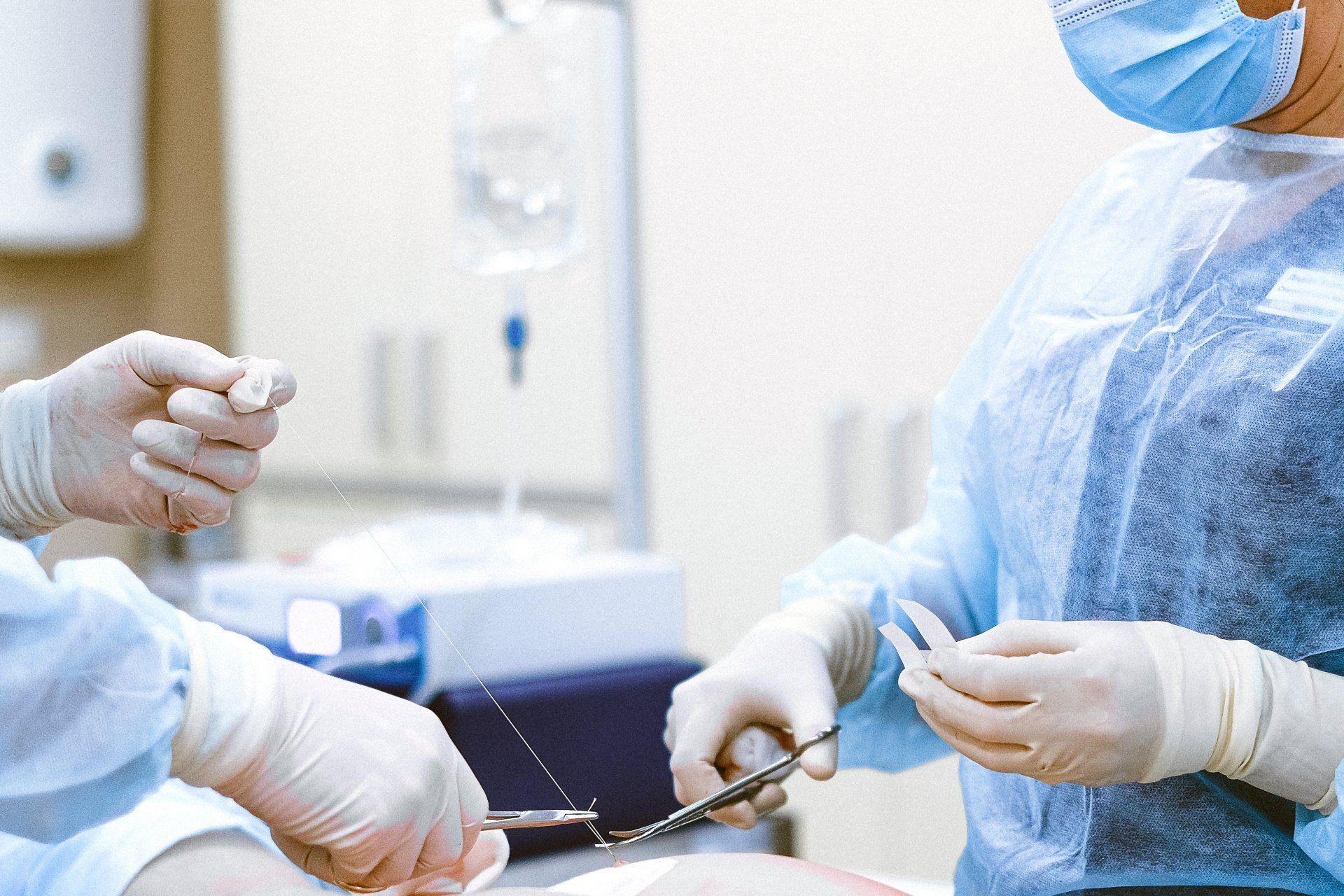
Program Update
Chester Career College is nationally accredited through the Council on Occupational Education (COE).
Our Surgical Technology Program is currently in the process of seeking programmatic accreditation for the purpose of allowing graduates to take the NBSTSA exam. Effective July 1, 2021, a law was enacted which required Surgical Technology graduates to take and pass the certification examination through NBSTSA in order to use the title of “Surgical Technologist”, and be registered with the Board of Medicine.
The school's application for programmatic accreditation was submitted in July, 2021. We plan to host a team visit in the early months of 2022 for the purpose of evaluation. If the school meets the standards at that time, the program will become programmatically accredited. It is important to note however, that the final decision on program accreditation is made by the review team and not by Chester Career College.
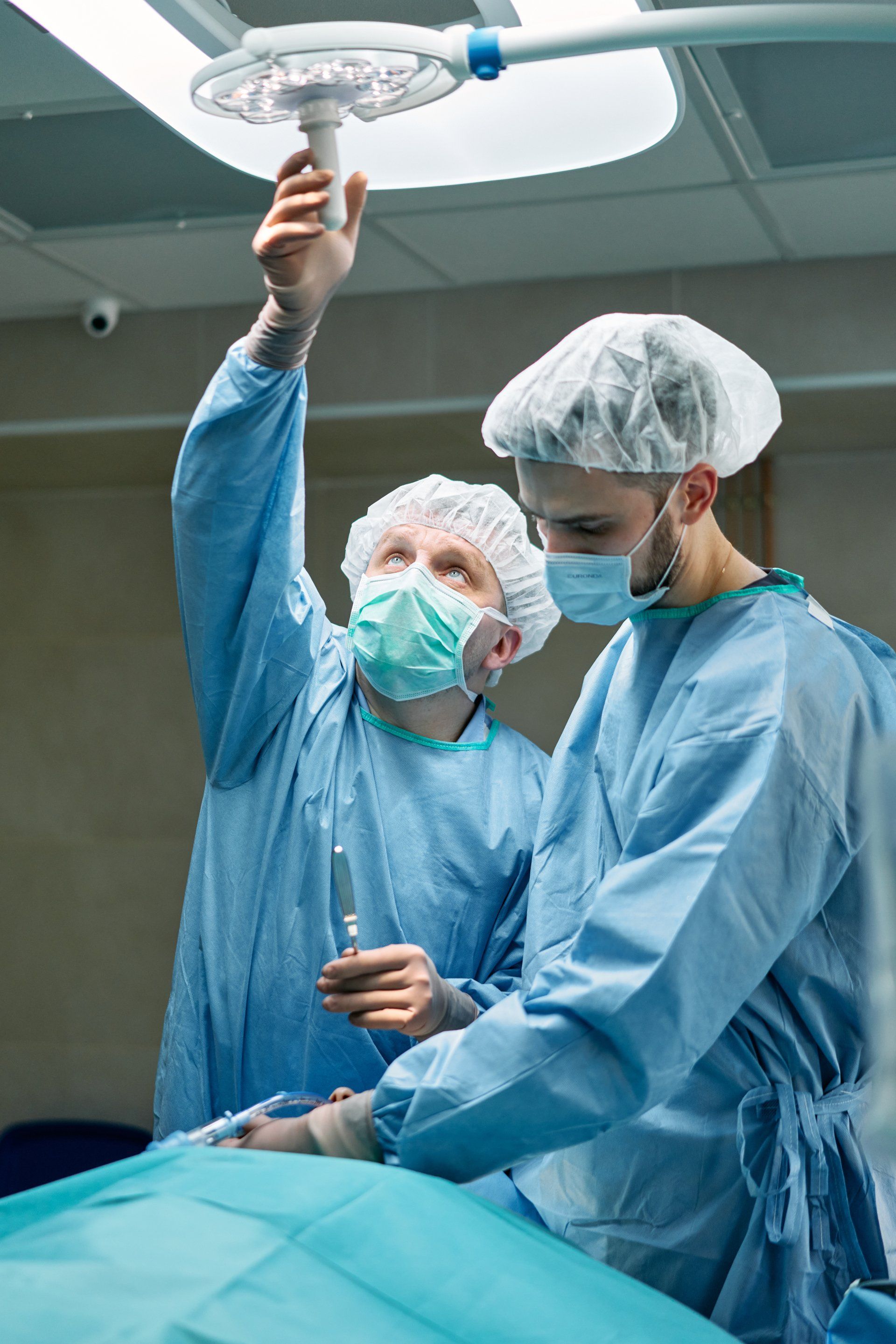
Hours
The Surgical Technology Program is held both day and evening. Day classes are held Monday through Thursday between 9:00 a.m. and 2:00 p.m. Evening classes are held Monday through Thursday from 5:30 p.m. and 10:30 p.m. Clinical assignments may not coincide with normal school hours or days. Classes missed due to holidays or other scheduled cancellations are made up on assigned Fridays or by extending regular class hours. This in-depth training is a combination of classroom, interactive lab, and externship.
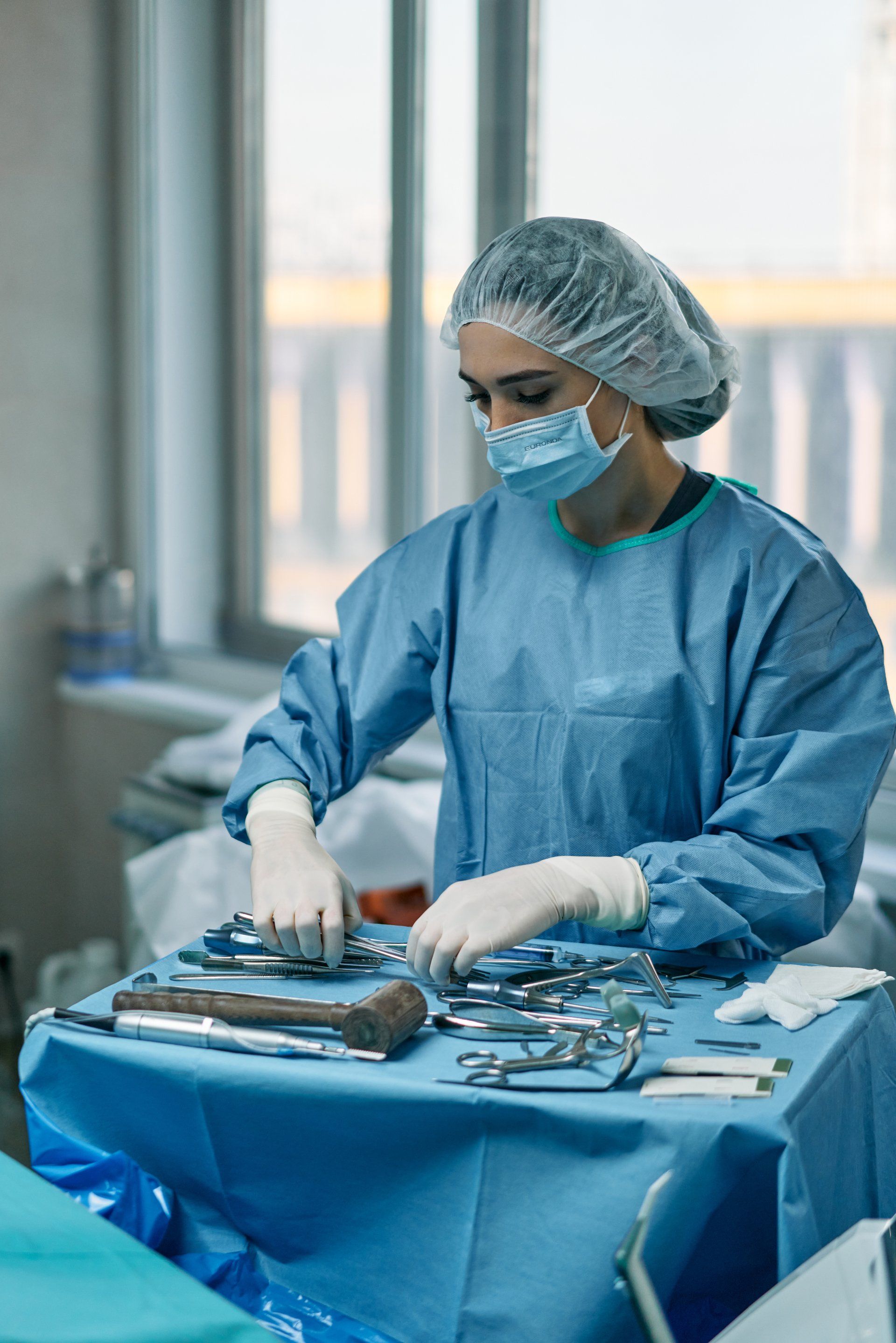
Nature of Work
Operating Room Technicians, also called scrubs, assist in surgical operations under the supervision of surgeons, registered nurses, or other surgical personnel. Operating Room Technicians are members of operating room teams. They help prepare the operation room by setting up surgical instruments and equipment, sterile drapes, and sterile solutions. They assemble both sterile and non-sterile equipment, as well as adjust and check it to ensure it is working properly. During surgery, O. R. Technicians pass instruments and other sterile instruments to surgeons and surgeon assistants. They may hold retractors, cut sutures, and help count sponges, needles, supplies, and instruments. Operating Room Technicians help prepare, care for, and dispose of specimens taken for laboratory analysis and help apply dressings. Some operate sterilizers, lights, or suction machines, and help operate diagnostic equipment. After an operation, Operating Room Technicians may help transfer patients to the recovery room and clean and restock the operating room.
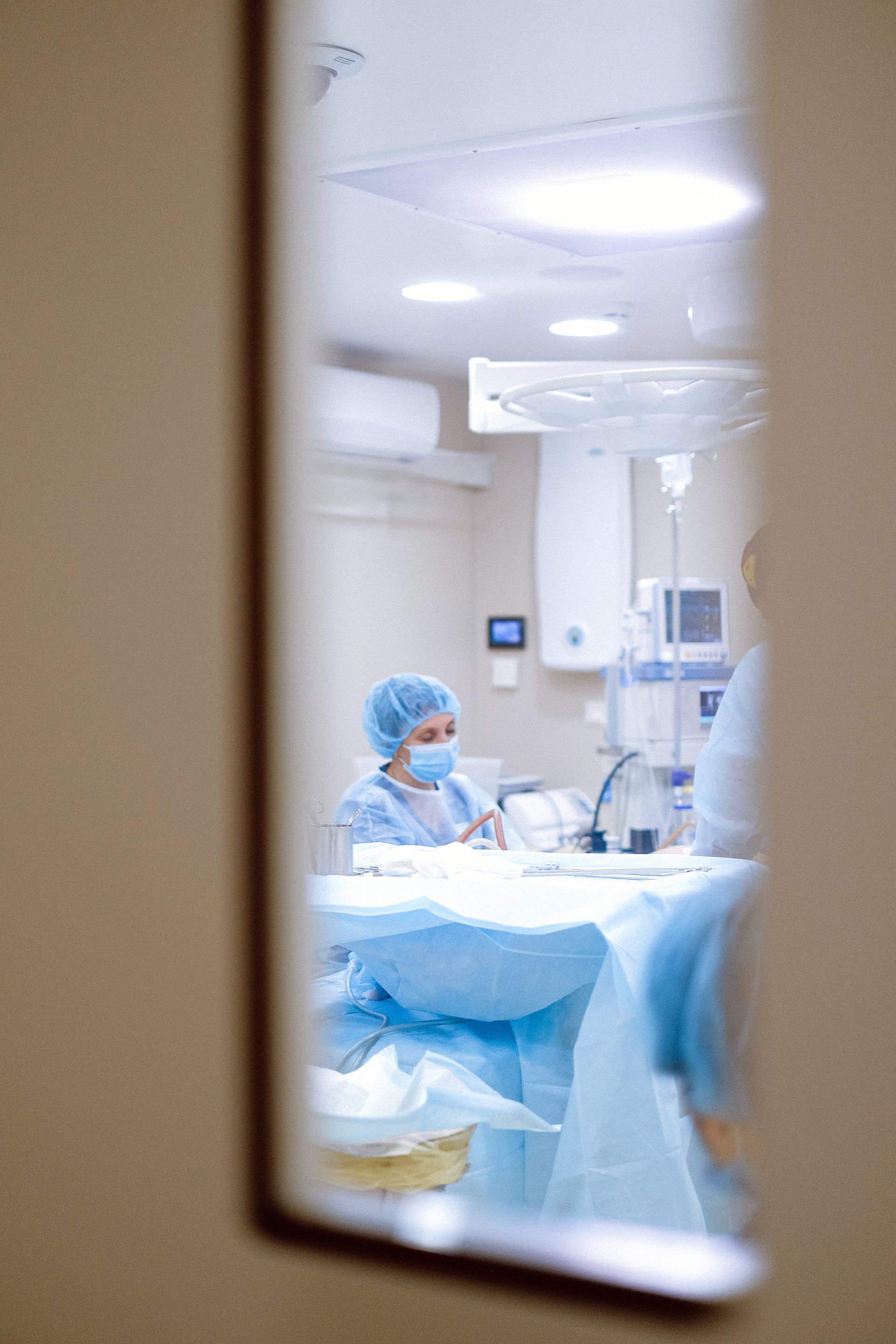
Job Outlook
According to the Bureau of Labor Statistics employment of Operating Room Technicians is expected to increase 9% from 2020 to 2030. This increase will occur as the volume of surgery increases and the health services industry expands because of technological advances in medicine, and a growing and aging population. Technical advances, such as fiber optics and laser technology, will permit an increasing number of new surgical procedures to be performed and also will permit an increasing number of new surgical procedures to be performed and also will allow Operating Room Technicians to assist with a greater number of procedures. In view of the preference of many healthcare employers for trained personnel, job prospects should be best for surgical technicians with formal training or experience, and particularly for those with certification.

Associate of Applied Science Degree Surgical Technology Program
The Surgical Technology program provides students with the technical ability, knowledge, and skills required for entry-level employment as a member of the healthcare team in hospital or surgical center operating rooms. Students receive training in the essentials of healthcare, surgical instrumentation, anatomy, physiology, medical language and pharmacology. Graduates will be prepared for employment as an operating room technician/scrub tech. A degree will be awarded upon successful completion of this program.

Hours
The Surgical Technology Program is held both day and evening. Day classes are held Monday through Thursday between 9:00 a.m. and 2:00 p.m. Evening classes are held Monday through Thursday from 5:30 p.m. and 10:30 p.m. Clinical assignments may not coincide with normal school hours or days. Classes missed due to holidays or other scheduled cancellations are made up on assigned Fridays or by extending regular class hours. This in-depth training is a combination of classroom, interactive lab, and externship.

Nature of Work
Operating Room Technicians, also called scrubs, assist in surgical operations under the supervision of surgeons, registered nurses, or other surgical personnel. Operating Room Technicians are members of operating room teams. They help prepare the operation room by setting up surgical instruments and equipment, sterile drapes, and sterile solutions. They assemble both sterile and non-sterile equipment, as well as adjust and check it to ensure it is working properly. During surgery, O. R. Technicians pass instruments and other sterile instruments to surgeons and surgeon assistants. They may hold retractors, cut sutures, and help count sponges, needles, supplies, and instruments. Operating Room Technicians help prepare, care for, and dispose of specimens taken for laboratory analysis and help apply dressings. Some operate sterilizers, lights, or suction machines, and help operate diagnostic equipment. After an operation, Operating Room Technicians may help transfer patients to the recovery room and clean and restock the operating room.

Job Outlook
According to the Bureau of Labor Statistics employment of Operating Room Technicians is expected to increase 9% from 2020 to 2030. This increase will occur as the volume of surgery increases and the health services industry expands because of technological advances in medicine, and a growing and aging population. Technical advances, such as fiber optics and laser technology, will permit an increasing number of new surgical procedures to be performed and also will permit an increasing number of new surgical procedures to be performed and also will allow Operating Room Technicians to assist with a greater number of procedures. In view of the preference of many healthcare employers for trained personnel, job prospects should be best for surgical technicians with formal training or experience, and particularly for those with certification.
Program Outline
| Course Number | Course Title | Credit Hours |
|---|---|---|
| STS650 | Health Care Concepts | 5 |
| STS660 | Body Structure and Function | 6 |
| STS670 | Surgical Technology Theory | 5 |
| STS672 | Surgical Techniques and Procedures I | 4 |
| STS674 | Surgical Techniques and Procedures II | 4 |
| STS676 | Surgical Techniques and Procedures III | 4 |
| STS680 | Surgical Specialties I with Lab | 4 |
| STS682 | Surgical Specialties II with Lab | 4 |
| STS684 | Surgical Specialties III with Lab | 4 |
| STS690 | Externship I | 4 |
| STS692 | Externship II | 4 |
| STS696 | Externship III | 4 |
| *ENG 115 | English Composition | 3 |
| *LIT 118 | Literature | 3 |
| *IDS 130 | Strategies for Success | 3 |
| *BSC 250 | Anatomy & Physiology I: Cell Structure and Function | 3 |
| *BSC 260 | Anatomy & Physiology II: Body Systems | 3 |
| *MFG 210 | Mathematics | 3 |
| *CGS 200 | Introduction to Computers | 3 |
| *SPC 240 | Speech | 3 |
| *PSY 120 | Introduction to Psychology | 3 |
| *Gen Ed Classes- 24 Credit Hours Required | ||
| Total | 76 |
QUICK LINKS
Programs
Academics
START PURSUING YOUR ALLIED HEALTH EDUCATION NOW!
CONTACT US
Phone: 804-751-9191
Fax: 804-751-2599
info@ccc-va.com
751 W Hundred Rd
Chester, VA 23836
QUICK LINKS
PROGRAMS
JOIN OUR EMAIL LIST FOR INFO AND UPDATES
Subscribe located in Footer
Thank you for joining our mailing list.
Please try again later.
Copyright © 2021 Chester Career College. Chester Career College is certified to operate in Virginia by the State Council of Higher Education for Virginia. Chester Career College is accredited by the Council on Occupational Education. This institution is approved to offer GI Bill® educational benefits by the Virginia State Approving Agency.
GI Bill® is a registered trademark of the U.S.Department of Veterans Affairs (VA). More information about education benefits offered by the VA is available at the official U.S. government website at http://www.benefits.va.gov/gibill.
GI Bill®
All Rights Reserved | Chester Career College

